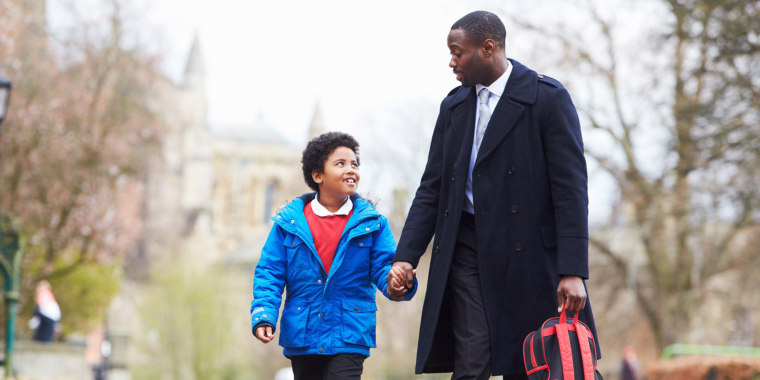Teaching your child to understand what another person is feeling is essential to helping him embrace differences, build relationships, communicate more effectively, and gain a global perspective. During the late elementary years, your child is strengthening his sense of empathy through practice, and he is learning how to manage and control his emotions in social situations. While you may be doing everything you can to teach your child about empathy, it can be challenging for him to apply it to every interaction, especially at this age. The changing moods brought on by the introduction of early adolescence can sometimes affect his ability to be empathetic in relationships.
Understanding your child’s emotions can help you both build empathy. You can show your child empathy in action by truly listening to him and being fully present when he is discussing something with you. When he feels that you genuinely care about his thoughts, emotions, and actions, you are strengthening your relationship and showing him what it means to be an active listener. Director of the Rutgers Social and Emotional Laboratory Maurice Elias says that bedtime is a good time to review conversations that you had with your child about difficult or emotion-filled issues or situations. Show him that you accept the validity of his emotions by saying things like, “When I put myself in your shoes, I can see why you feel this way,” or simply express understanding with phrases like, “I understand where you are coming from.” Elias adds that sometimes it is also helpful to share your own feelings. This is especially the case when you have disagreements related to what is safe to do and what is not. Your child will benefit when you share your feelings of worry about his safety, and you can benefit by hearing that your restrictiveness may be hurting his self-confidence and sending the message that you don’t have confidence in him.
Consider attending a play, going to the movies, or getting your child involved in acting. A great way to gain the perspective of others is through theater, whether it’s attending or being involved in shows at school or a summer program, or putting on skits at home. Many children enjoy play-acting with friends or performing for family members. If this sounds like your child, encourage him to practice feelings, reactions, and empathy. Talk about what it means to “try on” the feelings of someone other than himself, and about the causes and consequences of those feelings. By pretending to play the part of someone else, your child is continuing to learn to manage his own feelings and behaviors, because he has to suppress his own impulses in order to play the role of another. For younger children, you can also play a game of pretend to encourage your child’s capacity for empathy. When cleaning up around the house or doing chores, try role-playing with your child. Maybe he wants to pretend he’s a veterinarian and has to take care of his animals, or he’s a dad and has to clean up the house before the kids wake up from a nap.
Parent Toolkit resources were developed by NBC News Learn with the help of subject-matter experts, including Maurice Elias, Director, Rutgers Social-Emotional and Character Development Lab; Jennifer Miller, Author, Confident Parents, Confident Kids; and Michele Borba, Author, and Educational Psychologist.
